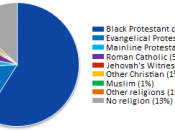World War II affected almost every aspect of American life. The 1930's marked a decade of economic hardship. In 1930 the Great Depression deepened and millions of Americans were forced out of their homes and jobs, equaling little money to support their families. Despite the numerous government agencies created by President Roosevelt, which produced thousands of jobs, many Americans felt hopeless. The rich were getting richer, and the opportunities and prospects of America's poor became grimmer. American morale was at an all time low since the days of the Civil War.
With the first sign of war, American's took a stand of neutrality. However, the worldwide destruction that Hitler's Army unleashed made it more and more difficult for America to remain a neutral nation. Prior to officially entering WWII, America monetarily aided Britain, France and the Soviet Union through the Lend-Lease Act. Subsequent to the bombing of Pearl Harbor, Roosevelt created the War Production Board where he appointed the executive vice president of Sears- Roebuck, Donald Nelson, to organize the nation's resources for an all-out war effort.
Roosevelt believed that "in a capitalist country, you have to let business make money out of the process [of war] or business won't work." Roosevelt also believed in the close collaboration of business and government.
The partnership of big science, government and big business established in the1940's created a firm foundation for future projects. Scientists were commissioned to perfect new weapons and other products. In addition to the development of the atomic bomb, American scientists also improved radar, developed jet engines and penicillin. During WWII business executives were offered key positions under Roosevelt in an effort to unite industry with government. Because of collaboration with the government, industrial production and corporate profits nearly doubled, as they found demand in markets that previously...


